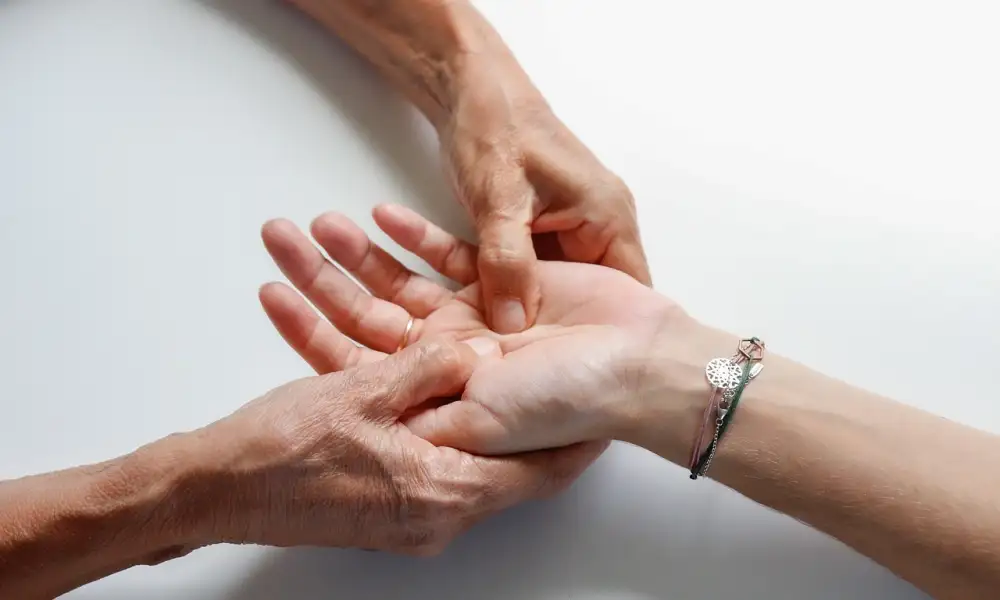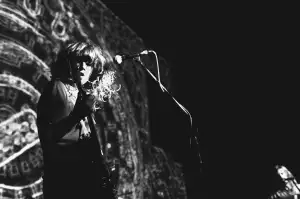Unlocking Relief: Hypnosis for Misophonia - A Promising Treatment Method for Sound Sensitivity

- Understanding Misophonia: Definition and Symptoms
- Current Treatment Options for Misophonia
- Exploring Hypnosis as a Potential Treatment for Misophonia
- How Hypnosis Works in Managing Misophonia
- Benefits and Effectiveness of Hypnosis for Misophonia
- Case Studies and Success Stories of Hypnosis for Misophonia
- Safety and Considerations when Using Hypnosis for Misophonia
- Integrating Hypnosis with Other Therapies for Misophonia
Misophonia, also known as sound sensitivity syndrome, is a relatively unknown condition that can have a significant impact on an individual's health and well-being. It is characterized by an intense emotional and physiological response to specific sounds, often referred to as "trigger sounds." These trigger sounds can include chewing, slurping, tapping, or even breathing noises.
The impact of misophonia on individuals can be profound. It can lead to feelings of anger, frustration, anxiety, and even panic attacks. People with misophonia may experience difficulty concentrating, sleeping problems, and increased stress levels in their daily lives. Relationships with family members, friends, and colleagues may also be strained due to the need to avoid triggering sounds.
Despite its prevalence among individuals of all ages and backgrounds, misophonia remains poorly understood by many healthcare professionals. This lack of understanding often leads to misdiagnosis or dismissal of symptoms as mere irritability or intolerance.
In recent years, however, there has been growing recognition of misophonia as a legitimate condition deserving of attention and research. As a result, new treatment methods are being explored to help alleviate the distressing symptoms associated with this condition.
One such promising treatment method is hypnosis. Hypnosis has shown potential in managing various psychological conditions by targeting subconscious thoughts and behaviors. By harnessing the power of suggestion and relaxation techniques, hypnosis aims to reframe the individual's response to trigger sounds and reduce their emotional reactivity.
In this article, we will delve deeper into the world of misophonia and explore how hypnosis may offer relief for those struggling with this challenging condition. We will examine the definition and symptoms of misophonia, current treatment options available, how hypnosis works in managing misophonia symptoms, case studies showcasing its effectiveness, safety considerations when using hypnosis for misophonia treatment, integrating hypnosis with other therapies, and ultimately, the potential of hypnosis in alleviating misophonia symptoms.
Understanding Misophonia: Definition and Symptoms
Misophonia, also known as selective sound sensitivity syndrome, is a neurological disorder characterized by an intense emotional and physiological response to specific sounds. Common trigger sounds include chewing, slurping, tapping, or breathing. Individuals with misophonia often experience anger, anxiety, or disgust when exposed to these sounds. Physical symptoms may include increased heart rate, sweating, muscle tension, and difficulty concentrating. The severity of symptoms can vary from person to person, but they can significantly impact daily life and relationships. Understanding the definition and symptoms of misophonia is crucial in developing effective treatment strategies.
Current Treatment Options for Misophonia
Current treatment options for misophonia include a combination of therapy and lifestyle changes. Cognitive-behavioral therapy (CBT) is commonly used to help individuals manage their emotional and behavioral responses to trigger sounds. This therapy aims to change negative thought patterns and develop coping strategies. Sound therapy, such as white noise or background music, can also be effective in reducing the impact of trigger sounds. Additionally, relaxation techniques like deep breathing exercises and mindfulness meditation may help individuals relax and reduce stress levels associated with misophonia. It is important for individuals with misophonia to work closely with healthcare professionals to determine the most appropriate treatment plan for their specific needs.
Exploring Hypnosis as a Potential Treatment for Misophonia
Hypnosis is emerging as a promising treatment method for misophonia, a condition characterized by an intense dislike or hatred of specific sounds. While traditional therapies like cognitive-behavioral therapy (CBT) and sound exposure therapy have shown some success, hypnosis offers a unique approach to managing misophonia symptoms.
Hypnosis involves inducing a state of deep relaxation and heightened focus, allowing individuals to access their subconscious mind. By guiding patients into this trance-like state, hypnotherapists can help them reframe their thoughts and emotions towards trigger sounds.
During hypnosis sessions, therapists use various techniques such as suggestion therapy and visualization to help patients develop new coping mechanisms and reduce the emotional distress caused by trigger sounds. By rewiring the brain's response to these sounds, hypnosis aims to alleviate the anxiety, anger, and frustration associated with misophonia.
Research on the effectiveness of hypnosis for misophonia is still limited. However, early studies have shown promising results. A small-scale study published in the Journal of Clinical Psychology found that participants who underwent hypnotherapy experienced significant reductions in misophonic reactions compared to those who received no treatment.
It is important to note that hypnosis may not be effective for everyone with misophonia. The success of this treatment method depends on individual factors such as willingness to engage in the process and responsiveness to hypnotic suggestions. Additionally, it is crucial to seek out qualified professionals who specialize in using hypnosis for misophonia.
While more research is needed to fully understand the mechanisms behind hypnosis and its impact on misophonia symptoms, it holds potential as an alternative or complementary treatment option. As awareness grows around this condition, exploring innovative approaches like hypnosis could provide relief and improve the quality of life for individuals living with misophonia.
How Hypnosis Works in Managing Misophonia
Hypnosis works in managing misophonia by helping individuals to reframe their perception and response to trigger sounds. During a hypnosis session, the individual is guided into a relaxed state where their subconscious mind becomes more receptive to suggestions. The therapist may use techniques such as visualization, positive affirmations, and desensitization exercises to help the individual develop a new perspective on the trigger sounds. Through repeated sessions, the goal is to rewire the brain's automatic response and reduce the emotional distress caused by misophonia triggers. This process aims to create new neural pathways that promote calmness and relaxation when encountering trigger sounds.
Benefits and Effectiveness of Hypnosis for Misophonia
Hypnosis has shown promising benefits and effectiveness in alleviating symptoms of misophonia. Studies have found that hypnosis can help individuals with misophonia experience reduced levels of distress and anxiety when exposed to trigger sounds. This is achieved by helping them reframe their perception and response to these sounds, allowing for a more relaxed and controlled reaction. Additionally, hypnosis can enhance self-regulation skills, enabling individuals to better manage their emotional reactions and maintain a sense of calm in triggering situations. It is important to note that the effectiveness of hypnosis may vary from person to person, but it offers a potential alternative treatment option for those struggling with misophonia.
Case Studies and Success Stories of Hypnosis for Misophonia
Several case studies have reported positive outcomes when using hypnosis as a treatment for misophonia. In one study, a 30-year-old woman with severe sound sensitivity underwent six hypnosis sessions over a period of three months. After the treatment, she reported a significant reduction in her misophonic reactions and an improved quality of life.
Another case study involved a 45-year-old man who had been suffering from misophonia for over 20 years. He underwent eight hypnosis sessions, focusing on relaxation techniques and reprogramming his response to trigger sounds. The results showed a remarkable decrease in his emotional distress and an increased tolerance towards trigger sounds.
These success stories highlight the potential effectiveness of hypnosis in managing misophonia symptoms. However, it is important to note that individual experiences may vary, and further research is needed to establish the long-term benefits of hypnosis for misophonia.
Safety and Considerations when Using Hypnosis for Misophonia
When considering hypnosis as a treatment for misophonia, it is essential to prioritize safety and ensure the well-being of individuals seeking relief. Firstly, it is crucial to consult with a qualified and experienced hypnotherapist who specializes in treating misophonia. They should have proper certification and adhere to ethical guidelines.
Additionally, individuals with certain mental health conditions, such as schizophrenia or severe depression, may not be suitable candidates for hypnosis. It is important to discuss any pre-existing mental health concerns with the hypnotherapist before starting treatment.
Furthermore, it is essential to understand that hypnosis may not be effective for everyone with misophonia. Each individual's response to hypnosis can vary, and some may not experience significant improvement in their symptoms.
Lastly, it is crucial to approach hypnosis as a complementary therapy rather than a standalone solution. Combining hypnosis with other evidence-based treatments like cognitive-behavioral therapy (CBT) or sound therapy can potentially enhance the effectiveness of managing misophonia symptoms.
Overall, while hypnosis shows promise as a treatment method for misophonia, it is vital to prioritize safety by consulting with qualified professionals and considering individual circumstances before pursuing this approach.
Integrating Hypnosis with Other Therapies for Misophonia
While hypnosis has shown promising results in managing misophonia symptoms, it is important to note that it should not be used as the sole treatment method. Instead, it can be integrated with other therapies to provide a comprehensive approach.
One such therapy is cognitive-behavioral therapy (CBT), which focuses on identifying and changing negative thought patterns and behaviors associated with misophonia. By combining hypnosis with CBT, individuals may experience enhanced symptom relief and better coping mechanisms.
Another therapy that can complement hypnosis is sound therapy. This involves using specific sounds or frequencies to desensitize individuals to trigger sounds. By incorporating hypnosis during sound therapy sessions, individuals may be able to achieve deeper relaxation and increased receptiveness to the therapeutic sounds.
Additionally, mindfulness-based practices such as meditation and deep breathing exercises can also be integrated with hypnosis. These techniques help individuals cultivate a sense of calmness and reduce stress levels, which can contribute to better management of misophonia symptoms.
It is crucial for individuals seeking treatment for misophonia to work closely with qualified professionals who have experience in both hypnosis and other therapeutic modalities. A personalized treatment plan that combines different approaches will ensure a holistic and tailored approach to managing misophonia symptoms effectively.
In conclusion, hypnosis shows promising potential in alleviating misophonia symptoms. While current treatment options for misophonia are limited, hypnosis offers a non-invasive and drug-free approach to managing sound sensitivity. By reprogramming the subconscious mind, hypnosis helps individuals develop healthier responses to trigger sounds, reducing distress and improving overall well-being. Numerous case studies and success stories highlight the effectiveness of hypnosis in reducing misophonia symptoms. However, it is important to consider safety and work with a qualified hypnotherapist when utilizing this treatment method. Integrating hypnosis with other therapies may also enhance its effectiveness. Further research is needed to fully understand the long-term benefits of hypnosis for misophonia.
Published: 25. 02. 2024
Category: Health



